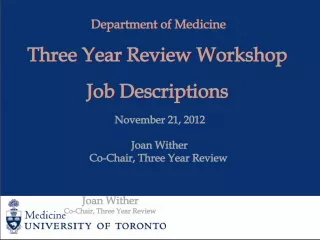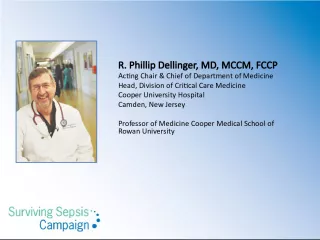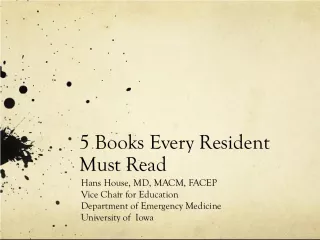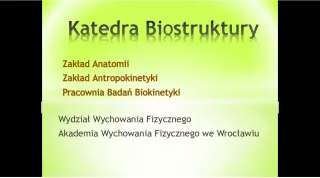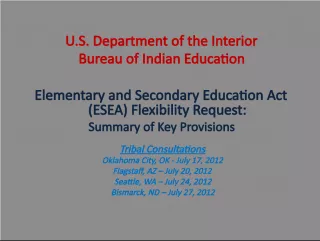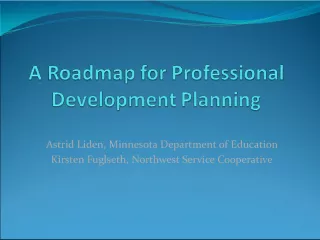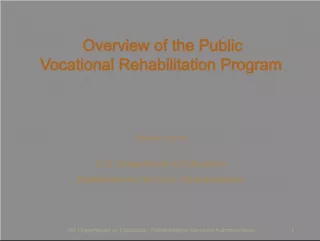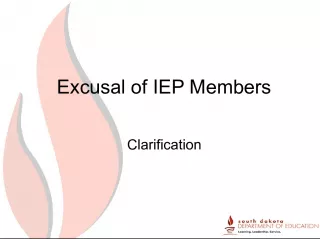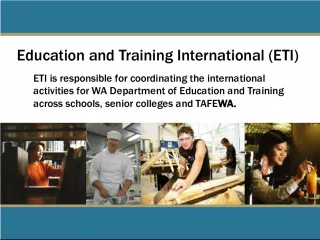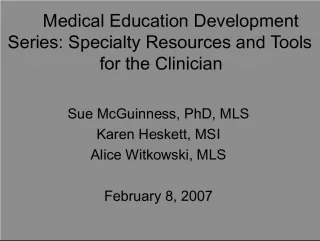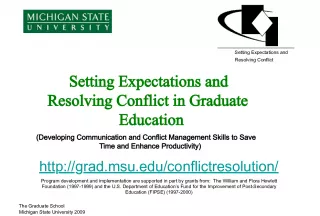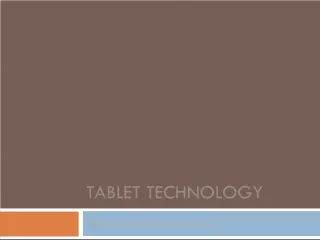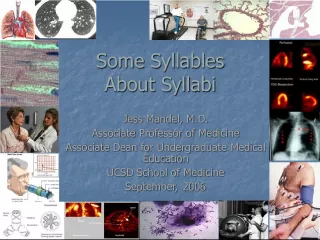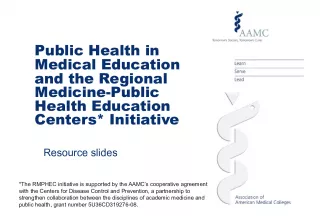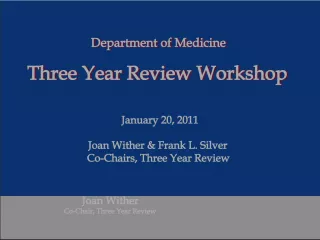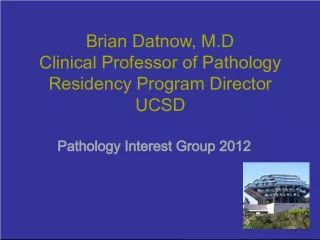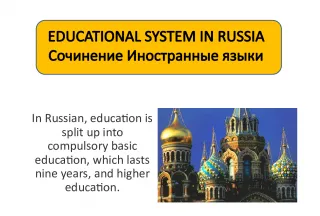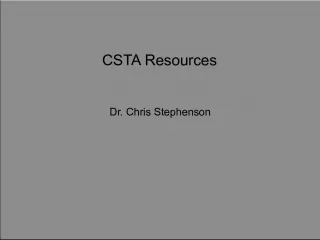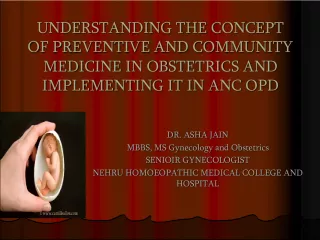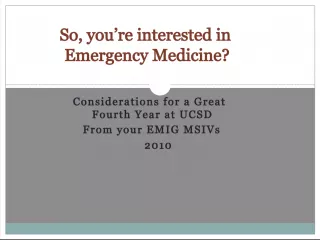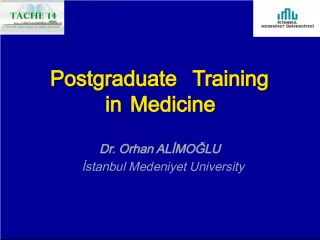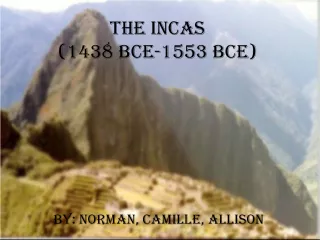Strengthening Undergraduate Education for New Members of the Department of Medicine
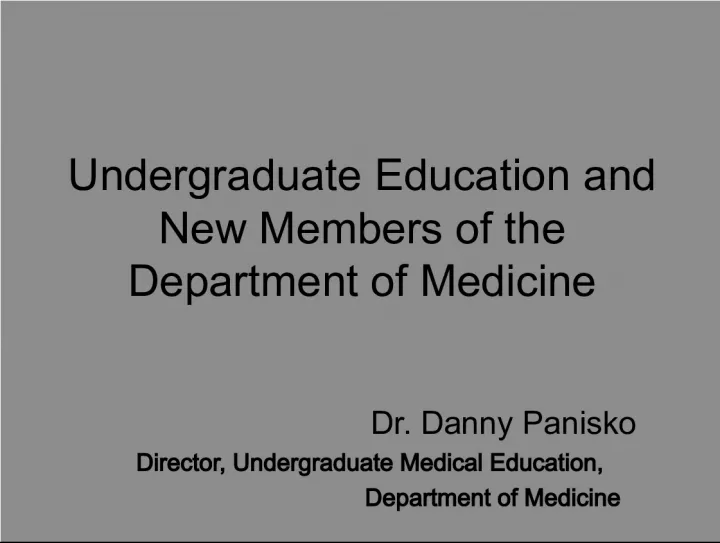

Dr. Danny Panisko, Director of Undergraduate Medical Education, discusses ways to enhance undergraduate medical education to better prepare new members of the Department of Medicine for their roles and responsibilities.
- Uploaded on | 0 Views
-
 susan
susan
About Strengthening Undergraduate Education for New Members of the Department of Medicine
PowerPoint presentation about 'Strengthening Undergraduate Education for New Members of the Department of Medicine'. This presentation describes the topic on Dr. Danny Panisko, Director of Undergraduate Medical Education, discusses ways to enhance undergraduate medical education to better prepare new members of the Department of Medicine for their roles and responsibilities.. The key topics included in this slideshow are . Download this presentation absolutely free.
Presentation Transcript
1. Undergraduate Education and New Members of the Department of Medicine Dr. Danny Panisko Director, Undergraduate Medical Education, Department of Medicine
2. Outline The undergraduate curriculum Courses with medicine input What role might you play? Who will ask you and how should you respond? Importance of undergraduate teaching Emotional context Faculty development
3. Structure & Function Metab & Nutr Art & Science of Clinical Medicine Determinants of community health Brain & Behav Pathobiology of Disease Foundations of Medical Pract PRE-CLERKSHIP Year 1 Year 2 CLERKSHIP Year 3 Year 4 Med Med D O C H Yr 3 Psy Sur Ob- Gyn Fam Ped Elec ACE Elec Elec Emer
4. DOCH
5. The Academies Intent Divide the large medical school class into smaller groupings What do they do? Deliver ASCM, PBL Where are they? (in alphabetical order!) Fitzgerald = St. Michaels Hospital Peters-Boyd = Sunnybrook / Womens College Wightman-Berris = UHN - Mount Sinai
6. Major courses with medicine input Preclerkship - ASCM Art and science of clinical medicine Bedside clinics Year 1 - emphasis on communication Year 2 - traditional bedside teaching, clinical methods
7. Major courses with medicine input Preclerkship - Year 1 Metabolism and nutrition GI, renal and endo (physiology, biochem, histo, clinical) PBL, lectures and seminars Brain and behaviour Clinical neurology (and other neurosciences) PBL, lectures and seminars
8. Major courses with medicine input Preclerkship - Year 2 Pathobiology of disease Microbiology, Oncology, Genetics, Immunology Mainly lectures Foundations of medical practice Introduction to clinical medicine 6/21 weeks medicine (CV, resp, renal, rheum, GI, hemat) PBL, lectures and seminars
9. Preclerkship: What role might you play? Significant time commitment PBL - 16 - 20 hours contact time ASCM 28-40 hours Smaller time commitment Seminars ASCM OSCE examiner Lecture
10. Medicine clerkship Year 3 6 weeks as junior house officer on GIM CTU 4 seminars per week Preceptor observed Hx and Px once (or twice) Clinical skills exam Year 4 3 weeks on GIM CTU 3 weeks in 6 - 7 ambulatory medicine clinics each week, repeat x 3 weeks OSCE exam at end
11. Medicine clerkship What role might you play? Attending on GIM ******Supervising clinics in year 4 ***Preceptor and clinical skills examiner in year 3 Seminars in year 3
12. Who will ask you for help? Preclerkship Course director Academy director PIC / division head Clerkship Local clerkship coordinator PIC / division head
13. What should you do when asked? Let me think about it. Find out what is involved and whether this is appropriate for you Discuss with your Division Director and/or an appropriate mentor, to determine if this fits with your overall teaching goals Dont overextend.... but !!!! Do say yes as much as possible we need you !!!!
14. Importance of undergraduate teaching Medical schools are still about educating future doctors (of all sorts)! Must do some teaching to get promoted Sustained excellence in teaching Scholarship (Research or CPA) + Teaching effectiveness (quantity, quality, educational administration, related to divisional/hospital norms)
15. Emotional context of the curriculum E is for expansion Possible growth in size of medical school Mississauga Academy The Distributed Medical School T is for tuition Approx. $18,000 and counting Major focus of student discontent
16. Faculty development Major initiatives Master teacher program Centre for Faculty Development at SMH Faculty Development Committee at Faculty of Medicine Course-based activities
17. There is no greater reward as a teacher than the look on a students face when he or she says, with unmistakable joy: so thats what the JVP is! Conclusion
